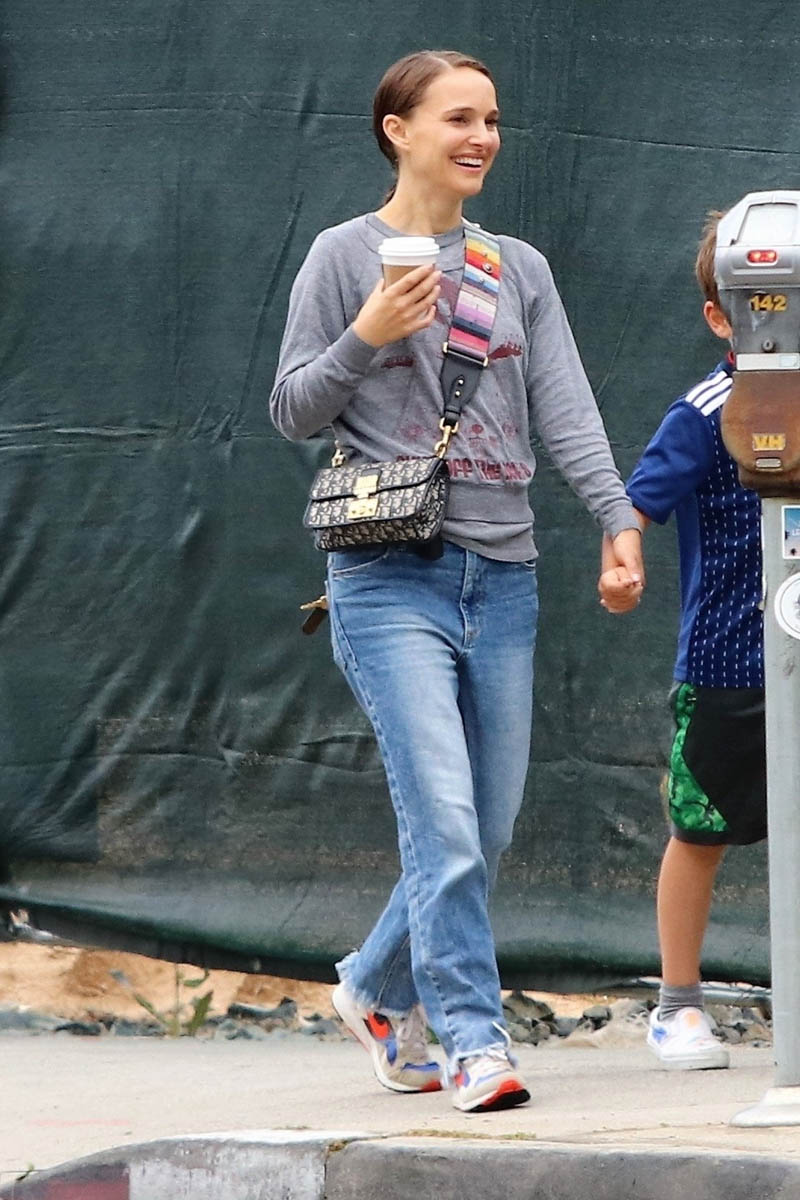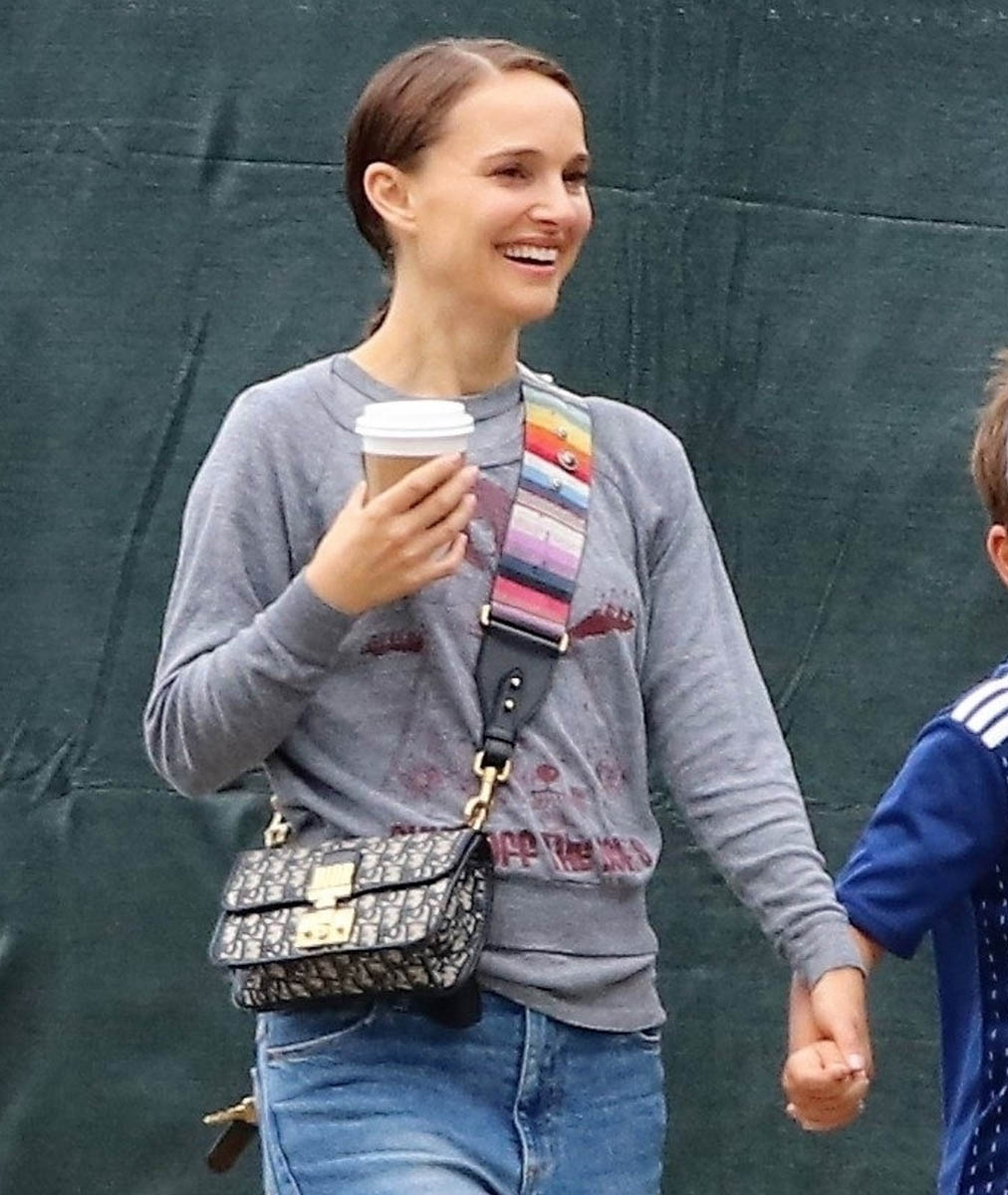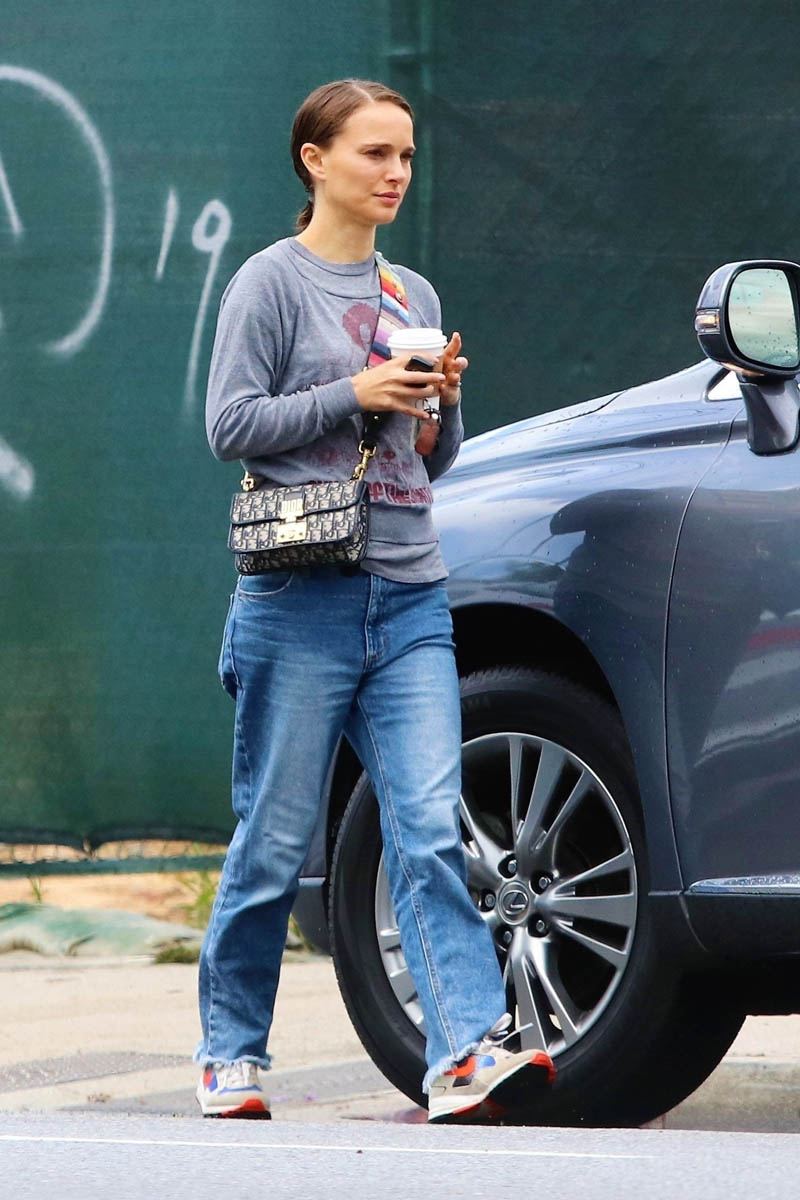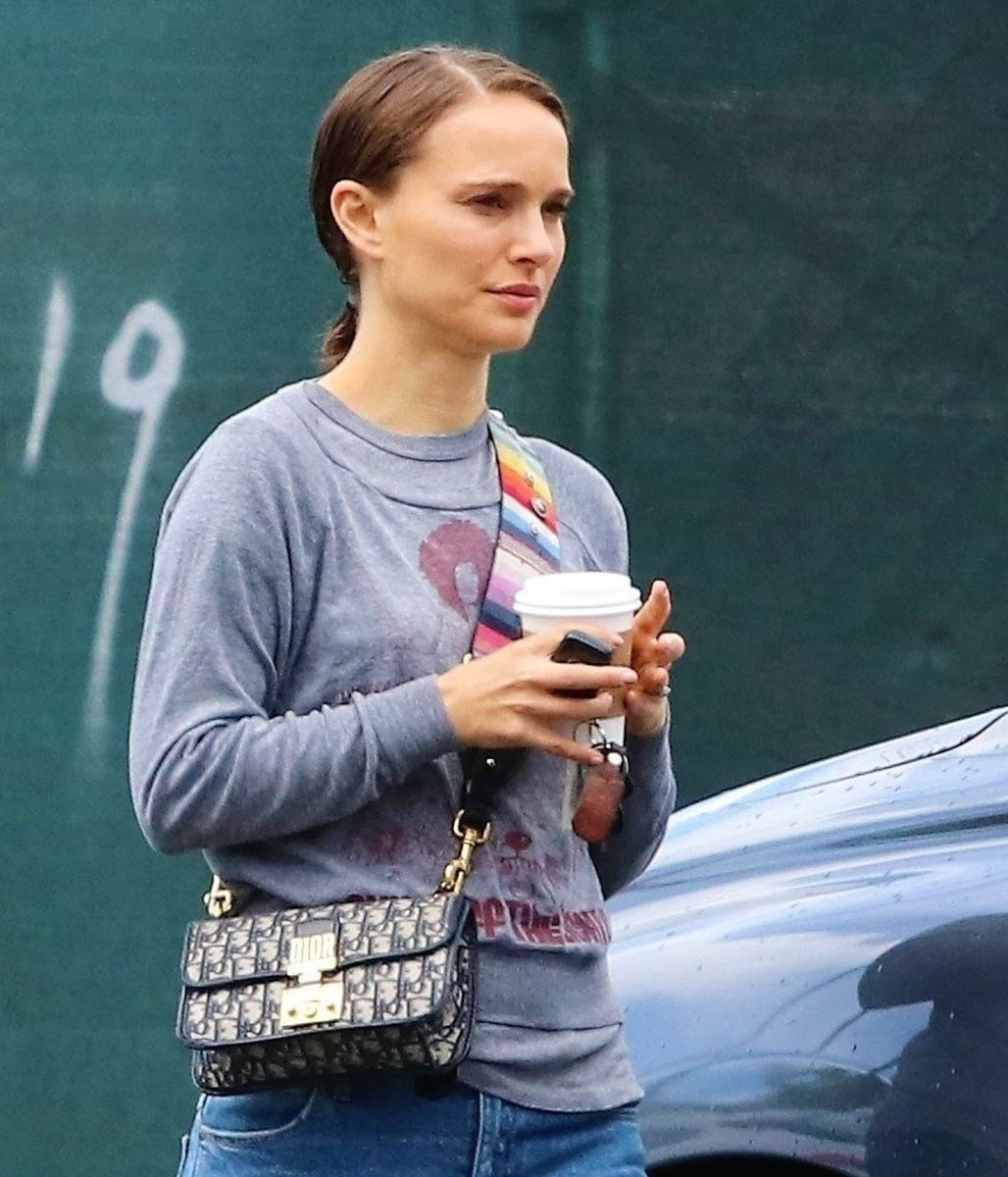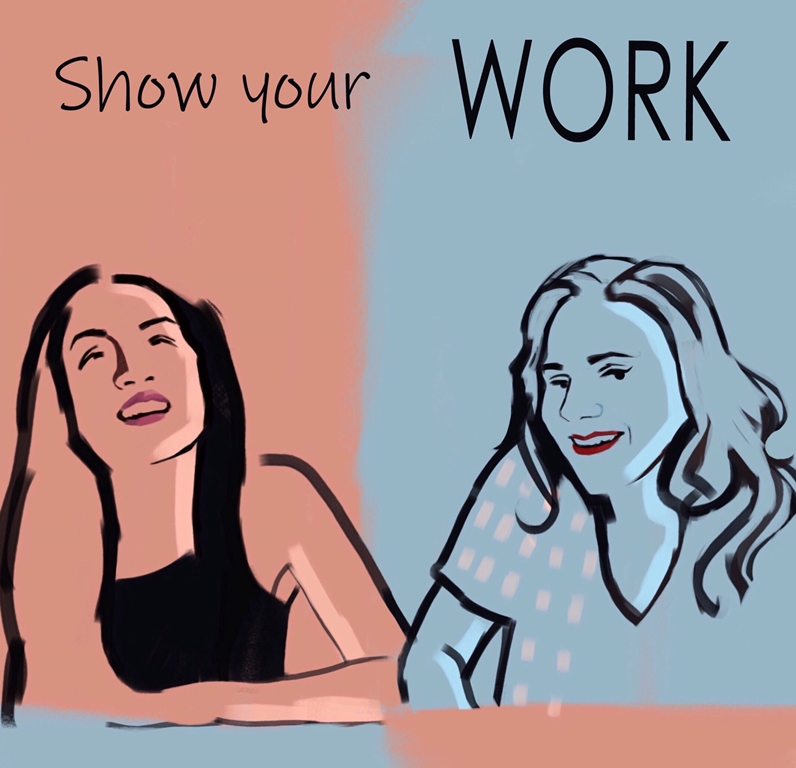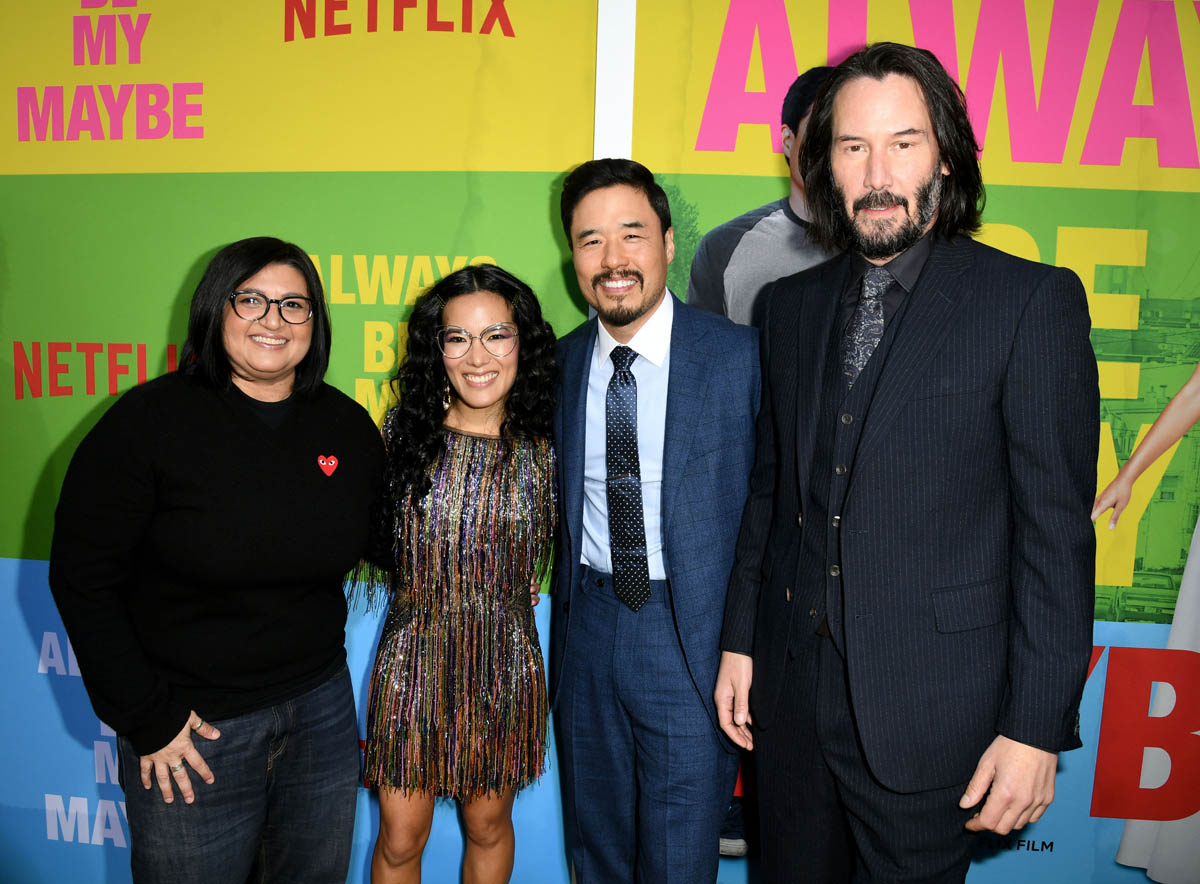Natalie Never Dated Moby


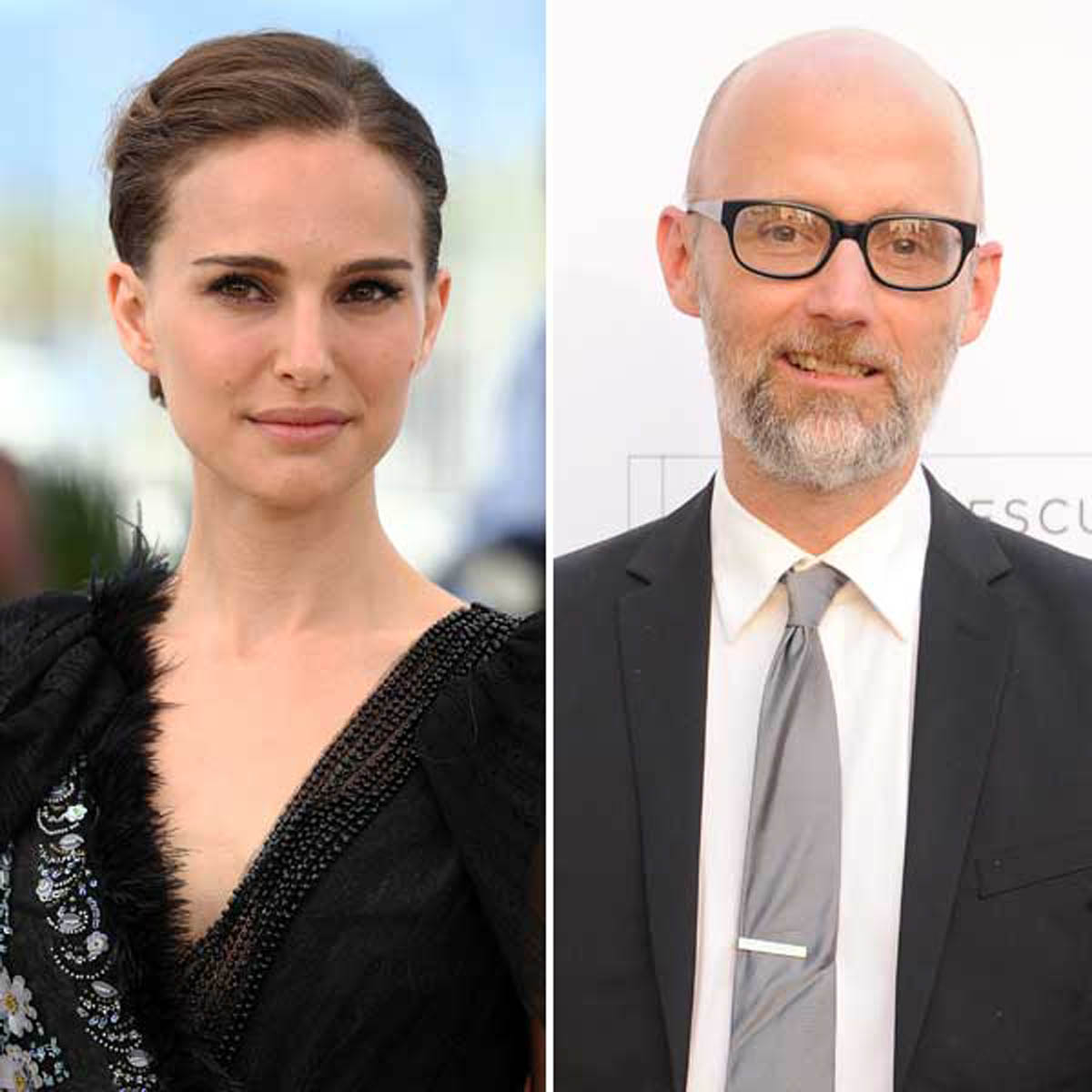
(Lainey: this piece was written by guest contributor Jessica Goldstein. Jessica is currently the Culture Editor for ThinkProgress and she’s written for Vulture and The Washington Post. That’s how I met Jessica – she wrote a profile on me and LaineyGossip.com for WaPo last year and I’m so excited to be able to feature her work on our site. You can reach Jessica on Twitter @jessicagolds.)
Did Moby think Natalie Portman would never find out that he name-dropped her in his memoir? Or did he think she would just sit by and let him say that they “dated” when, according to her, it was less of a “two peers having a fling” and more of a “predatory older man being gross around a teenager”?
In his new memoir, Then It Fell Apart, Moby says that he dated Natalie when she was 20 and he was 33. She flirted with him in his dressing room, he said, and later they were “kissing under the centuries-old oak trees [at Harvard University]. At midnight she brought me to her dorm room and we lay down next to each other on her small bed. After she fell asleep I carefully extracted myself from her arms and took a taxi back to my hotel.”
Why did this pure, loving tryst come to an end?
“I wanted one thing: for me to be alone … nothing triggered my panic attacks more than getting close to a woman I cared about.”
If this inspires no response as strong as LOL OOOOOKAY, well, you are not alone. Natalie is on the cover of Harper’s Bazaar this month. In her interview, published Tuesday, she tells the story quite a bit differently, noting that she was not 20 years old but “barely 18 having recently graduated from high school” at the time of their encounters, and she remembers him primarily as “an older man who was interested in me in a way that felt inappropriate.”
Here’s the full quote:
“I was surprised to hear that he characterised the very short time that I knew him as dating because my recollection is a much older man being creepy with me when I just had graduated high school,” Portman told us. “He said I was 20; I definitely wasn’t. I was a teenager. I had just turned 18. There was no fact checking from him or his publisher – it almost feels deliberate. That he used this story to sell his book was very disturbing to me. It wasn’t the case. There are many factual errors and inventions. I would have liked him or his publisher to reach out to fact check.”
Her account puts Moby, now 53, in a less favourable light – and is unlikely to drive book sales in a way that an alleged fling with a young Natalie Portman might.
“I was a fan and went to one of his shows when I had just graduated,” she said. “When we met after the show, he said, ‘let’s be friends’. He was on tour and I was working, shooting a film, so we only hung out a handful of times before I realised that this was an older man who was interested in me in a way that felt inappropriate.”
Now, say you’re Moby and you read this interview. There is still, possibly, a way to salvage this, by demonstrating growth, as several men in the wake of the #MeToo movement have done. Instead, he posted a picture on Instagram that he thought constituted “proof” of his version of events but only made him look worse, what with him being shirtless and Natalie looking extremely young and not exactly comfortable (every woman will recognize that I’m-smiling-until-this-man-stops-touching-me expression on her face):
View this post on Instagram
A post shared by moby xⓋx (@moby) on May 22, 2019 at 3:23am PDT
Worth noting here that Moby refers to the interview Natalie gave as “gossip”, diminishing her story as tabloid smut, rather than her lived experience which she is telling, authoritatively, to a serious magazine.
That Moby thinks the move here is to DOUBLE DOWN on his lie, that he does not even see, in hindsight, how his treatment of Natalie was not a romantic pursuit but a gross predation that she remembers as creepy and inappropriate suggests he has spent the past two years in some WiFi-less cave in an alternate universe where the #MeToo movement and the sprawling, nuanced conversations around it never unfurled. Where no one was discussing how gender and power operate and how a power imbalance as stark as the one between Moby (a successful, white, male musician then in his 30s and Portman (a teenage ingénue, 15 years his junior, just starting college) makes a truly consensual romantic or sexual relationship almost impossible, even if both parties are on board at the time -- which, clearly, they weren't!
And not for nothing, in his Instagram, Moby is still saying she was 20 and not 18 when they “dated”, so he’s basically insisting that everything about her version of events is a lie, even the basic, irrefutable facts of her own biography.
It’s astonishing, too, that Moby thought Natalie wouldn’t refute this story. It suggests he still sees her as the teenager she was when they met and not the adult she’s become. Natalie has emerged as one of the most eloquent and outspoken advocates for the Time's Up movement. (Which, of course, she discusses at length in the Harper’s Bazaar story.) She gave a fantastic speech at the Variety Power of Women event last year, springing up on the balls of her feet as she spoke, like a boxer staying hyped between rounds. And in that speech, one of her steps for “toppling the patriarchy” is to “gossip well: “Stop the rhetoric that a woman is crazy or difficult. If a man says a woman is crazy or difficult, ask him, ‘What bad thing did you do to her?’" She is on the side of good, clearly.
Since the Harvey Weinstein story broke in October 2016, Natalie, like so many other A-list actresses, has been more open than ever about her early experiences on sets. She’s typically a private star, not the type to, say, put her kids on the cover of PEOPLE or use them in paparazzi shots. (She’s been married to dancer and Black Swan choreographer Benjamin Millepied since 2012 and they have two kids, can you name them off the top of your head? I didn’t even remember there were two until I Googled it just now.) So it’s a considerable shift for her to speak so candidly about her personal life. Lately she’s talked in vivid detail about being a young actress whose sexualized roles made her vulnerable to some of the worst “fan” harassment. At the 2018 Women’s March, she spoke about how, when she was only 13 and had starred in The Professional, she was the victim of what she described as “sexual terrorism.” The first fan letter she ever received was a detailed “rape fantasy” from a man.
As the Natalie/Moby denial blew up, more stories about Moby as a self-aggrandizing dude who thinks he’s a genius made the rounds on Twitter, including his idea to end terrorism after 9/11 by having “the best graphic designers” make pamphlets that would embarrass Osama bin Laden (?) AND that he didn’t even realize Lana del Rey was insulting him when she called him “the man” as in, a member of the establishment, “the person they put in the guillotine in the revolution.” Do you think this is helping his book sales? Feels like the no-duh winner of this round is Natalie and, for everyone who was at least reminded that Moby existed, they were also reminded that he’s a dirtbag.
One more thing: This whole Moby/Natalie thing is yet another example of Veep inadvertently predicting reality. This season, the show did a perfect #MeToo plotline in which Jonah (Jonad, Jolly Green Jizzface, "the wrong shape," etc) insisted that he had dated and sexually harassed an attractive young staffer (SNL's Heidi Gartner), who he’d need to have sign an NDA. She arrived at their meeting with an NDA of her own, asking Jonah to agree to never tell people they dated; what they really had was a totally professional lunch, “really more of a group thing.” He refuses, so she goes public to say that she is just one of the many women who want the world to know they never, ever dated Jonah Ryan. (“He once tried to friend me on Facebook, and I did that thing where I never responded yes or no, hoping —praying — that it would end. His behavior was completely appropriate at all times.”) #NotMe starts trending, like Moby was trending yesterday, for his absurd and pathetic self-own.

